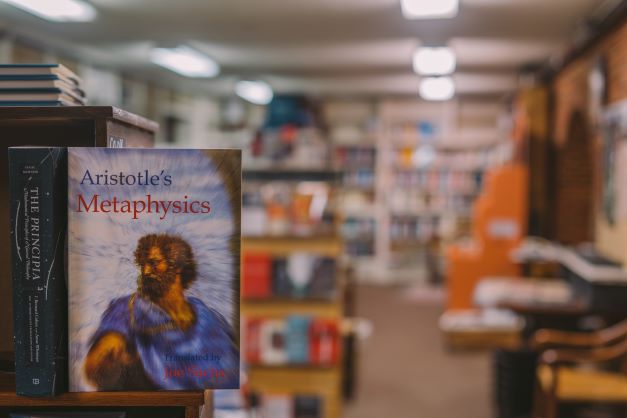Throughout my Teaching Evaluations, a consistent theme which emerges is the importance of curiosity and independent thinking:
- “[Nicholas] always promotes us to think the questions independently.”
- “He managed to incite genuine curiosity in me for topics I previously hadn’t been interested in.”
- “He engaged me during every discussion.”
In almost all of my classes, I ask my students questions—for example, what rhetorical devices do they see in a given passage, or what do they think may have may have appealed about this text to a particular audience? To be sure, I usually have my own stock of information which I want to communicate, but I never let a class go by without asking my students questions.
The reason is simple. I want my students to ask me questions too—or to learn to do so, if they don’t already have the habit.
According to the Greek philosopher Aristotle, “All human beings by nature desire to know” (Metaphysics, 980a). Both as a student and as a teacher, I have found this observation to be true, as well as the teacher’s greatest ally in the classroom. The primary goal of any teaching is to stimulate the student’s natural curiosity, thereby teaching the student to “learn how to learn.”

This method isn’t important only for philosophy and the liberal arts, however. It is of critical practical importance, as employers surveyed in 2018 report. According to the survey, supermajorities of business executives considered skills related to asking one’s own questions and conducting research to be “very important”:
- Critical thinking and analysis: 78%
- Ability to work independently: 77%
- Self-motivation and initiative: 76%
- Ability to find, organize, and evaluate information: 73%
- Ability to analyze and solve complex problems: 67% [1]
If a teacher isn’t inspiring his or her students to ask questions, then a teacher isn’t teaching.
[1] Hart Research Associates, Fulfilling the American Dream: Liberal Education and the Future of Work—Selected Findings from Online Surveys of Business Executives and Hiring Managers. Association of American Colleges and Universities, July 2018, https://www.aacu.org/sites/default/files/files/LEAP/2018EmployerResearchReport.pdf.







